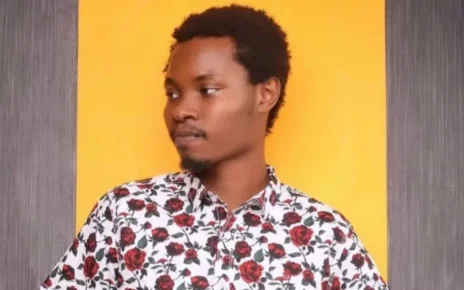In a surprising development, Kenyan musician Stephen Otieno, widely recognized as Stevo Simple Boy, has taken a bold step by reaching out to the Kenyan public with a unique request.
Known for his distinctive musical style and humble demeanor, Stevo Simple Boy, an internet sensation, recently made an appeal on social media platforms, urging his fans and fellow Kenyans to assist him in constructing a new residence and acquiring a Prado.
This unprecedented plea has stirred a range of reactions among his followers, prompting discussions about the extent of fans’ involvement in supporting their favorite artists. Let’s delve into the particulars and analyze the ramifications of Stevo Simple Boy’s unconventional request.
The Journey of Stevo Simple Boy:
Stevo Simple Boy shot to prominence in 2019 with his viral track, “Mihadarati,” which captivated audiences with its infectious melody and insightful lyrics. Hailing from Kibera, one of Kenya’s largest slums, the young artist swiftly became a source of inspiration for many, espousing messages of hope, resilience, and determination.
Despite encountering numerous obstacles, Stevo Simple Boy has remained steadfast in his commitment to his origins, leveraging his music as a platform to address societal issues and shed light on the realities of life in underprivileged communities.
In a heartfelt video shared across his social media channels, Stevo Simple Boy expressed his aspiration for homeownership and ownership of a Prado, a luxury vehicle often associated with success in Kenya. He cited his modest upbringing as a barrier to independently achieving these dreams and reached out to his fans and the broader Kenyan populace for assistance.
The artist underscored that these ambitions weren’t merely self-serving but would also serve as a beacon of encouragement for others facing hardships in society.
Following Stevo Simple Boy’s public appeal, reactions have poured in from various sectors of Kenyan society. While some fans have expressed their willingness to contribute and fulfill his request, others have raised concerns, questioning the appropriateness of such a plea.
Critics have contended that fans should support an artist’s endeavors by purchasing their music or attending their performances rather than directly funding their personal desires. Furthermore, the issue has sparked a broader discourse on the obligations of artists to their supporters and the expectations placed upon them.



